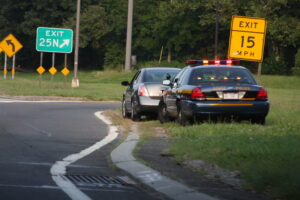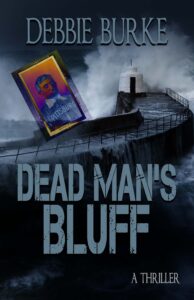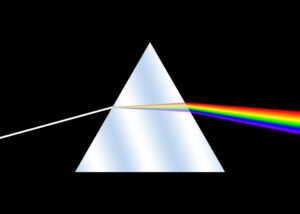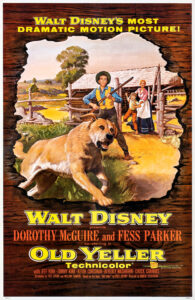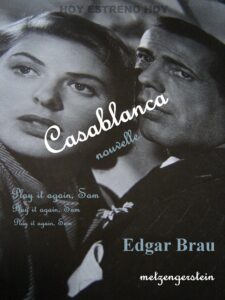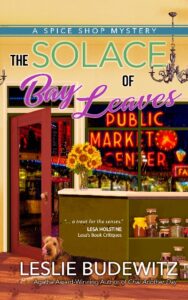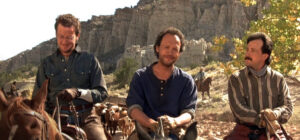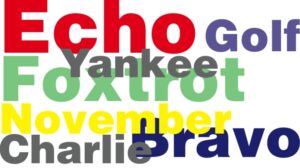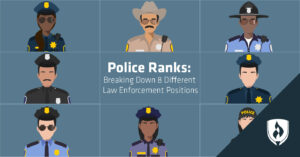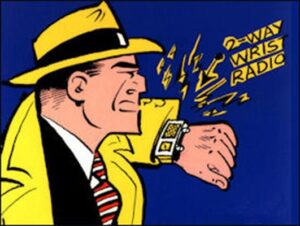By John Gilstrap
I might have mentioned a few dozen times in this space that I spent 15 years in the fire and rescue service, at a volunteer department that ran over 14,000 calls per year. My name is on thousands of those reports. I’ve been burned, shot at, and threatened by one very large knife. I ran two plane crashes, uncountable car crashes, delivered two babies and performed CPR hundreds of times. In the end, I saved more lives than I lost, and I never got paid a dime for any of it. That’s a point of pride to me.
Every line of work has its own vocabulary–rhetorical shortcuts that relay information that others might not understand, but mean very specific things to insiders. I thought I’d take you inside the firehouse for a peek at our peculiar dictionary. (Warning: Some of what follows is . . . insensitive. If you’ve never been an emergency responder, it might be hard to understand, but trust me when I say it is entirely possible to be compassionate and insensitive at the same time. Sometimes, the humor is the only good part of a really crappy day.)
Now, in no particular order . . .
FNG: The full pronunciation of effing new guy, aka rookie. Also known as a red hat, because in my jurisdiction, FNGs wore red helmets on the fireground. I wanted them to wear cowbells, but they refused. We also called them wheel chocks, even though real wheel chocks always knew what they were supposed to do, and they never did stupid stuff.
Blue flares: There is no such thing as a blue flare, but FNGs didn’t know that. It was always entertaining to send them over to the farthest-away fire station with orders to bring back a box of blue flares. Of course, when they arrived at the target station, those folks would have just given them away to another station, miles away of course. That fun could go on for hours. It was like a cat chasing a laser pointer. Smoke shifters (either left-handed or right-handed) could be used in lieu of blue flares.
Box o’ Rocks: The intellectual assessment of someone who, say, didn’t catch on to the blue flares gambit after two or three stations.
Ticks: The name paid firefighters used for volunteers, purportedly because we were annoying and always hanging around. The fact that said volunteers built the firehouse and purchased all of the rolling stock they rode on and furniture they sat in often went unacknowledged.
Squirrel: This one had at least two meanings. One was another derogatory term for volunteers, but another dealt with enthusiasm. To “squirrel a call” meant either to drive to the scene in your POV (privately owned vehicle) or to respond from the firehouse with a spare piece of fire apparatus.
Paid maids: In the early days, this was the volunteers’ term for paid personnel. Among their daily tasks was to clean the kitchen and the bathrooms. (No, the two sides of the house did not always get along.)
Big eye: Have you ever encountered a challenge that was so huge and so out of the ordinary that you kind of vapor locked and didn’t know what to do first? That’s the big eye. When the world is on fire or people are screaming for assistance, it’s a bad thing to get. FNGs get the big eye a LOT.
Fireground: The general term for the scene of any emergency involving fire and rescue apparatus. In my jurisdiction, the senior OIC (officer in charge) of the First due (see below) wagon (see below) was in overall charge of the fireground, while the senior aide (see below) on the ambulance was in charge of patient care.
OIC: Translates to officer in charge, but is not necessarily tied to rank. In my jurisdiction, the OIC of any piece of apparatus was the person in the shotgun seat (right-hand front seat). If, for example, a captain was driving, but a sergeant was in the seat, the sergeant would be in charge of the fireground. It was a great way to train up-and-coming officers.
Fireground Commander: For larger incidents, command would be passed to a chief officer. Chiefs were the senior officer of their respective fire departments, but they rarely commanded individual pieces of apparatus. Chiefs had their own buggies but rarely wrested command from the first due OIC. It was, however, customary for the OIC to offer command to the chief, who then decided whether or not to take it. To be relieved without first offering would be a slap in the face.
Bugles: Fire officer rank insignia. Lieutenants wear one bugle on their collar points. Captains wear two . . . chiefs of departments wear five.
Wagon: This has changed in many jurisdictions, but where I ran, every fire station housed two pumpers (what you think of when you think “firetruck”). The first one out the door on a call was the wagon, and the second was the engine. Together, both the wagon and engine were called an engine company. Thus, Wagon 14 or Engine 14 were individual vehicles. Engine Company 14 was two vehicles, and when they were on the road, it was time for the fire to be very scared.
Aide: The OIC of the ambulance.
First due: The area to which a department or a specialty vehicle (ladder truck, hazmat truck, etc.) is dispatched first. The next closest is second due, and so forth. In my jurisdiction, for a commercial alarm, the dispatch would sound something like this: “Box 1404 for the structure fire. Engine companies 14,13 and 2, Trucks 14 and 13, Squad 2, Ambulance 14.” The first number of the box number (in this case 14) indicates who’s first due, the second part is a rough idea of how far the call is from the station. (Fire station 14 sits in the center of box 1400. Ditto every other fire station.)
Smells and bells: I can’t begin to imagine the number of dispatches that started with “odor of smoke” or “fire alarm sounding.” These calls got the full boat (full alarm assignment–see below), rousted a bunch of people out of bed, and left the beleaguered first due engine company officer with a complex report to fill out.
Working fire (or a worker): A real fire with real flames. The opposite of smells and bells.
Second alarm (or third . . .): Different types of structures have different alarm assignments. In my jurisdiction, a single family house fire had an alarm assignment of two engine companies, a truck (ladder truck), a heavy squad (think rolling tool box with lots of cool toys) and an ambulance. At the top of the heap, the hospital had an alarm assignment of four engine companies, two trucks, two squads and (I think) three ambulances. When the fireground commander strikes a second alarm on a fire, he’s ordering up a duplication of the first alarm. Remember this when you hear about a four-alarm fire.
Special alarm: Say the fireground commander only wants one more engine company or one more truck. That would be a special alarm, not to be confused with an additional alarm (see above).
Scratch: I think this one’s unique to volunteer departments. A piece of apparatus scratches when it fails to mark responding within three minutes after dispatch. When a house scratches, the next due piece of apparatus will be dispatched in its place. There is no greater humiliation.
Second (or third, or fourth) call: These happen quite a lot during weather events, when everyone is running their wheels off. Let’s say Wagon and Ambulance 14 are already running a call, when the station gets hit again for an incident. Dispatch knows that Engine 14 and Ambulance 14-2 are in the station, but they have no way of knowing if they are manned. So the dispatch would sound like, “Box 1425 for the auto accident. Engine Company 14 (your second call), Ambulance 14 (your second call), Engine Company 2, Ambulance 2.” Whoever got out first got the call.
To cut numbers: Occasionally, someone would walk into the station with an injury or illness, or we would wander up on something while in service (see below). In this case, because the dispatcher has no idea that there’s an incident, we’d radio in and ask them to “cut numbers” on a new incident, and we’d give them the address. This would make the incident official and take the appropriate vehicle out of service.
In service/out of service. This is counter-intuitive to a lot of people. A piece of apparatus is in service when it is available for a call. When on a call (not available for another call) it is out of service. It was common, when we were assisting an ambulance with a medical call, for the dispatcher to ask us if we could “go in service for a call.” If we were, then there no second calls would be needed.
Bidding a call: Say that Ambulance 14 is just clearing the hospital (which is in Station 13’s first due) after dropping off a patient when a call comes in for, say, an auto accident in Box 1313. If Ambulance 14’s OIC thinks he’s closer, he can bid the call. It would sound something like, “Ambulance 14, Dispatch. We’re closer. Put Ambulance 13 in service.” It’s kind of humiliating for Station 13. In the old days, on rare occasions, there were bidding wars, where neither vehicle agreed to go in service, so there’d be a race to the scene. Whoever got there first, got the call.
Tapped (or tapped out): To be dispatched. “We got tapped last night for a wreck on Walker Road.” “They tapped us out for worker at the Bates Motel.”
Putting a good stop: When a crew extinguishes a fire quickly and with minimum damage, they’ve put a good stop on the fire.
Cellar saver: Exactly the opposite of a good stop. When the roof ends up in the basement (i.e., the structure is a total loss), the fireground commander is credited with saving the cellar. That’s . . . bad.
Snot-slinger: A big fire. Aka, the big one.
Teeth-hair-and-eyeball: The kind of incident where the most useful pieces of equipment are body bags and tweezers.
DRT: Dead right there. (A play on DOA.)
Federal Q: That wonderful siren on the front bumper that sounds like an air raid siren on speed. Melting the Q meant to have it spun up really high. Combined with the air horn in rush hour, melting the Q created lanes out of stopped traffic where cars had nowhere to go. I had a driver for years who would melt the Q at oh-dark-early, shouting his mantra out the window: “If I gotta be up, you gotta be up, too!”
I’m sure there are many I’ve forgotten, but this is a good start. So, what about you, TKZers? Y’all come from interesting backgrounds. Give us a peek into your secret dictionary.
=
One last thing. If you’re a teacher or if you’re with a book club, and you’d like me to Zoom with you, drop me an email at john@johngilstrap.com
 Success comes in many forms. No two writers view success in the same way. Sure, if we’ve had a film adaptation of our novel, then I think we can all agree that’s a success story.
Success comes in many forms. No two writers view success in the same way. Sure, if we’ve had a film adaptation of our novel, then I think we can all agree that’s a success story.
